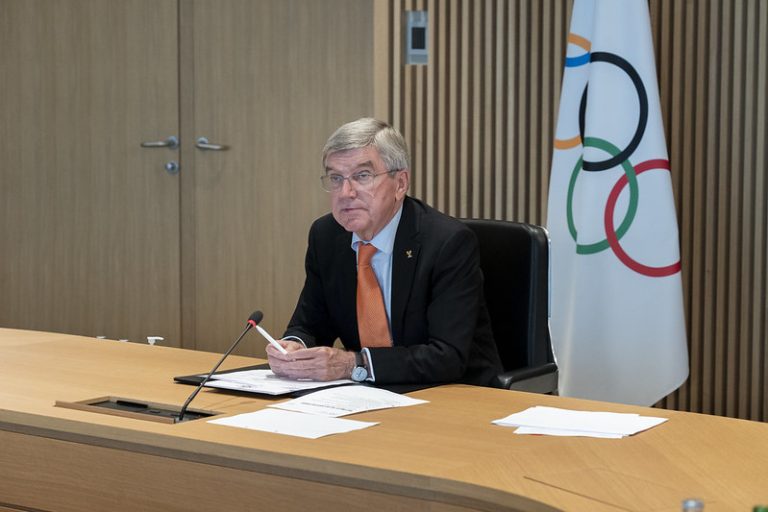Vancouver’s bid to host the first-ever indigenous led Olympic Winter Games in 2030 is over, British Columbia’s Minister of Tourism, Arts, Culture and Sport Lisa Beare announced Thursday.

“Based on careful consideration, the Province is declining to support a bid,” Beare said in a statement.
Without the support of the Province potential federal funding will not be activated, making the project impossible.
“For more than a year, the Province has engaged in evaluating a potential bid for B.C. to host the 2030 Olympic and Paralympic Winter Games,” Beare said in a statement.
“I know that the prospect of hosting these Games is exciting to athletes and sports fans. However, the Province has the responsibility to weigh the benefits with the costs and possible risks of the project.
“There are billions of dollars in direct costs, and potential guarantee and indemnity liability risks on this project that could jeopardize our government’s ability to address pressures facing British Columbians right now.
In 2019 the IOC radically reformed the bid process and introduced significant cost-cutting measures that were to reduce the financial burden of hosting the Games. Vancouver was seen as an ideal model to test the reforms with its legacy from the 2010 Games available to leverage.
“Planning and hosting an event of this magnitude requires significant attention and resources. We have existing commitments to host the 2026 FIFA World Cup and the 2025 Invictus Games. These world-class events will bring the international spotlight to British Columbia, as well as economic benefits to support the province’s tourism-sector recovery for the next decade and beyond.”
A Canadian Olympic Committee statement issued Thursday afternoon added “We have been informed of the BC Government’s decision not to support moving forward with the current bid to bring the Olympic and Paralympic Games back to Canada in 2030.”
“The Canadian Olympic Committee (COC) and Canadian Paralympic Committee (CPC), working under the leadership of the Lil’wat, Musqueam, Squamish and Tsleil-Waututh Nations, believes in the strengths of this Indigenous-led process to bring the Olympic and Paralympic Winter Games back to the region.”
A spokesperson told GamesBids.com that the COC will take time time to “process” the news before responding.
Vancouver last hosted the Winter Games in 2010. Previously Calgary staged the event for the first time in Canada in 1988.
With British Columbia out of the race, only Sapporo in Japan and Salt Lake City in the United States remain. A joint bid by Barcelona and Pyrenees in Spain collapsed earlier this year when the two partners couldn’t agree on the venue allocation.
The International Olympic Committee (IOC) had hoped to name preferred candidates in December with a planned election in May at the all-members Session in Mumbai. However, the meeting had to be delayed until October 2023 while the IOC considers possible sanctions against the Indian Olympic Association (IOA) for non-compliance.
This delay was seen as advantageous to Vancouver, giving the bid more time to gain approval from the province.
Only two weeks ago the bid received a significant boost when municipal elections reshaped Vancouver’s city council with mostly pro-Olympic representatives. New Mayor-elect Ken Sim was positive about the bid after he defeated anti-Olympic candidate Colleen Hardwick who promised a referendum on the project if she were elected.
The options are now more difficult for the IOC with Salt Lake City indicating that they prefer to host in 2034 to open some breathing space following the Los Angeles 2028 Summer Games. U.S. organizers have offered to change plans as the IOC requires, suggesting that they could step in to host the 2030 edition if other options diminish.
Meanwhile Sapporo, once the clear frontrunner in the race, has lost its shine amid the corruption scandal connected to the Tokyo 2020 Summer Games. Key executives there have been charged with taking bribes from sponsors for favorable treatment. The headline grabbing scandal has caused embarrassment to both the IOC and the Japanese Olympic Committee – and public support has since dwindled.
The IOC has struggled to retain viable candidates to host recent Winter Games. For the 2015 edition, Beijing defeated unlikely Almaty, Kazakhstan after four European cities dropped out of the race due to costs, referendums and political issues. In the 2026 bid only Milan-Cortina and Stockholm remained after four other cities withdrew for similar reasons.
Milan-Cortina was elected to host those Games.
IOC reforms were to eliminate the occurrence of dropouts by instead working with interested bidders in a private “dialogue” without any commitment. Only viable candidates are invited to “targeted dialogue” with a chance to be elected. It seems, however, that the optics of “dropping out” have not been swept under the rug.
More to come…


